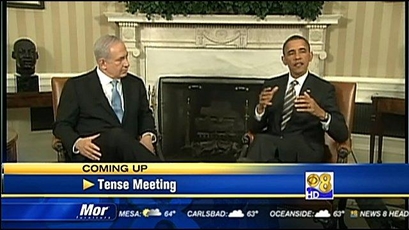CAIRO — Muslims and Christians pelted each with stones in a Cairo suburb Thursday over the reopening of a church the former regime closed years ago.
The church is one of three to be reopened as part of the Egyptian authorities’ plan to try to defuse recent religious tensions. They have promised to reopen nearly 50 churches across Egypt in an attempt to appease Christian protesters who have been holding a sit-in for more than a week along the Nile.
The church is one of three to be reopened as part of the Egyptian authorities’ plan to try to defuse recent religious tensions. They have promised to reopen nearly 50 churches across Egypt in an attempt to appease Christian protesters who have been holding a sit-in for more than a week along the Nile.
The protesters are also demanding the prosecution of those behind recent attacks on at least three churches in Cairo following the popular uprising that toppled former President Hosni Mubarak on Feb. 11.
Thursday’s clashes began when police accompanied a group of Christians to reopen the Church of the Virgin in the suburb of Ain Shams. More than 1,000 Muslims, including dozens of ultraconservative Salafi Muslims, tried to block the way, and the sides pelted each other with stones, a security official said.
Police detained a number of those involved and the scuffle was quickly contained, said the o
fficial, who spoke on condition of anonymity because he was not authorized to talk to the media. No injuries were reported.
The Christians then entered the church while a smaller protest continued outside, the official said.
Meanwhile, hundreds of Christians who have been camping out along the Nile river outside the TV building decided not to break up their protest camp in anger at the harassment.
“It was a farce,” said Girgis Atef, a protest organizer.
About 10 percent of Egyptians are Christians. Earlier this month, mobs of Muslims, apparently urged on by the ultraconservative Salafi sect of Islam, stormed the Virgin Mary Church in the Cairo neighborhood of Imbaba and set it ablaze.
The attack was sparked by a rumor that a Christian woman planned to marry a Muslim, which some religious purists consider to be forbidden.
Fifteen people were killed and more than 200 were injured in the clashes
Meanwhile, Egypt’s military rulers said parliamentary elections will be held no later than Sept. 30, as stipulated by the constitutional declaration that has replaced Egypt’s suspended constitution.
The rulers announced a new law regulating the voting in the upcoming elections, saying it allowed for Egyptians living abroad to vote, a right long denied to millions of them.
However, Maj. Gen. Mamdouh Shaheen said the logistics of organizing a vote by expatriates have not been worked out, indicating the decision is not final.
“There are rules and regulations that organize this operation ... The law stipulates that there must be a judge monitoring every ballot box, not a consul,” said Shaheen, a member of the governing armed forces council. His statements were carried on the official news agency MENA.
The law also allows Egyptians to vote using their national ID card, skipping the registration phase required during Mubarak’s rule — something rights activists said allowed the former regime to fix and inflate the registry in their favor.
http://www.washingtonpost.com/world/muslim-christian-clashes-erupt-over-reopening-of-church-in-egyptian-capital/2011/05/19/AFQJ7F7G_story.html






